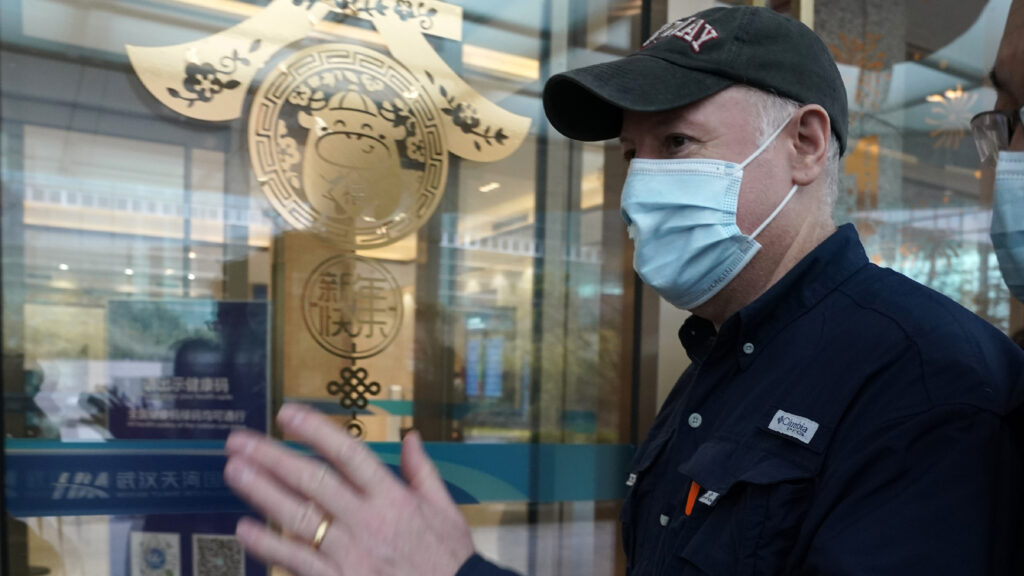WASHINGTON — A House panel is pushing for a virus research group and its director to be barred from any federal funds and criminally investigated, the latest in a campaign to probe the origins of the Covid-19 pandemic and regulate virus research.
Republicans, in particular, are asking the administration to immediately debar the research group EcoHealth Alliance, and to refer the case to law enforcement. Democrats, in a separate report, did not go that far but said that documents and testimonies “raise reasonable questions” about the organization receiving any future taxpayer funding. Both caucuses, in separate reports, concluded that EcoHealth failed to report high-risk viral disease research at the Wuhan Institute of Virology in China and misrepresented its work to U.S. federal agencies.
advertisement
That left EcoHealth President Peter Daszak with few, if any, allies during a Wednesday hearing before the committee.
Democrats and Republicans alike grilled Daszak about the safety of EcoHealth’s research, his oversight of work at the Wuhan lab and delays sharing information about risky studies with federal officials. On the latter, Republicans accused EcoHealth of doing experiments in 2019 that made a coronavirus in mice more pathogenic, an approach known as gain-of-function research. EcoHealth did not submit a report about this study for two years.
Daszak repeatedly denied that EcoHealth has done gain-of-function studies because the lab was not making a pathogen with pandemic potential. Lawmakers on both sides of the aisle appeared skeptical of that response and questioned the delay reporting the study. (Daszak said the organization had trouble accessing NIH’s reporting system; the agency has said there is no evidence of that.)
advertisement
While gain-of-function research is not illegal, Republicans in particular have called for the U.S. government to bar these methods from federal funding because they can make viruses more transmissible.
At times, Daszak talked over lawmakers and each party’s counsel, telling them they misinterpreted what he said in documents or testimony.
“Your responses here are unsatisfactory,” ranking member Rep. Raul Ruiz (D-Calif.) told Daszak after roughly three hours of testimony. “You are explaining things to your convenience to avoid consequences.”
However, Ruiz and other Democrats also stressed that the report did not prove a theory that the pandemic originated in a lab leak or that EcoHealth was involved in any such research.
The U.S.-based EcoHealth first caught the attention of the Trump administration for its coronavirus work at the Wuhan institute central to lab leak theories. While EcoHealth and federal agencies have maintained there is no relationship between the organization’s work and Covid-19, the National Institutes of Health terminated its research grant in April 2020 on directions from the White House.
NIH reinstituted EcoHealth’s grant in 2023. A debarment would prevent the group from receiving any more federal funds, for any project.
Daszak testified that the organization has been “open and transparent” about its work and with “emotions running high” around the coronavirus pandemic, the research was misrepresented. He, his family, and EcoHealth employees received death threats and harassment as a result, he said.
Committee members also asked outright if he believed that the virus leaked from a lab rather than spread from animals to humans through food markets. In March 2020, Daszak had signed onto a letter to “strongly condemn conspiracy theories suggesting that Covid-19 does not have a natural origin.”
On Wednesday, he said, “It is possible but extremely unlikely, based on the evidence we have.”
Committee Chairman Brad Wenstrup (R-Ohio) wrapped the hearing with an insistence that the committee was not “throwing the baby out with the bathwater” by asking these questions about viral disease research.
“Everybody on this committee supports good research. This, however, is not good research,” he said.

